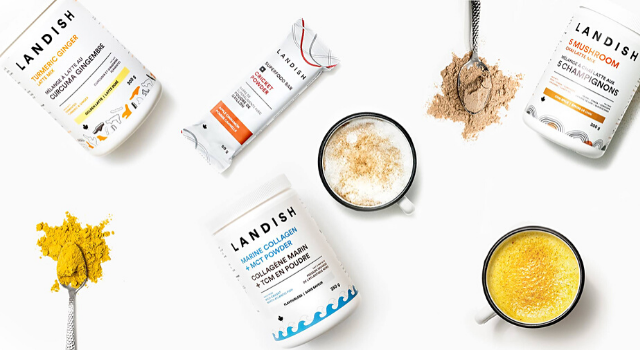Many of my clients struggle to lose weight despite consuming a “healthy” diet. Why is this? Taking the time to critically analyze your food intake and energy expenditure can be helpful. But it often doesn’t give the whole picture of what is happening in your body. I’d like to outline a few additional factors which can contribute to why this can be so difficult for many people.
1) The Basics
Do you know how many calories in and calories out you are eating and expending each day?
The most basic and simple advice for healthy weight loss is being aware of how many calories should be consumed daily. A great app for this is here: https://www.myfitnesspal.com/.
It breaks down your calories into macronutrients (aka ‘macros’) such as carbohydrates, protein and fat.
Consumption of 3500 extra calories equals one pound of fat. For an average adult man, 2000 calories per day will result in a weight loss of 1-2 lb. per week. For an average woman, this is 1500 calories a day. Obviously, the benefit of exercise is that it increases the number of calories used and prevents loss of lean body mass (muscle) and (hopefully) speeds up weight loss! Most of us likely have this pretty well dialled in, though so on to the second point…
2) Carbohydrate Intolerance and Glycemic Index
Calories in, calories out doesn’t always tell the whole picture. Certain types of food can make us more (or less) prone to storing excess calories as fat. The gylcemic index of any given food means how quickly it turns to sugar in your body and spikes your blood sugar levels. Food that spikes blood sugar causes the hormone insulin to be secreted. Insulin tells your body to store excess blood sugar in muscles or fat tissue — thereby promoting weight gain. Here is a good link for checking glycemic index and load of different foods: https://ultimatepaleoguide.com/glycemic-index-food-list/.
People who get these spikes in insulin will also experience a rebound low blood sugar called hypoglycaemia. When you experience hypoglycaemia, you will get low energy and increased carb and sugar cravings – setting you up for a vicious cycle. Foods that are high in healthy fats, high quality protein and low in refined carbs can help manage this cycle.
3) Insulin Resistance
Insulin resistance is a form of pre-diabetes. Basically, your body starts pumping out too much of the hormone insulin as it tries to stabilize blood sugar in response to the glycemic load in your body. Increased insulin output causes weight gain. Essentially, it is your body yelling at it’s cells telling them to wake up and stop spiking the insulin so much. Insulin resistance can be part of a cluster of symptoms known as metabolic syndrome. Certain supplements such inositol, N-actylcysteine and chromium picolinate have been shown to reduce insulin resistance.
4) Subclinical Hypothyroidism
Most people have heard of hypothyroidism but some may not know about subclinical hypothyroidism. This is borderline low thyroid function. Bloodwork may show ‘normal’ range but the normal range is quite broad. People at the high end of the normal range may already be experiencing pathological symptoms.
The thyroid and adrenal glands function together as the control switches of the body’s metabolism. So a low-functioning thyroid could result in unexplained weight gain and difficulty losing weight. Other symptoms include fatigue, low mood, menstrual irregularity, cold body temperature, dry skin and hair, constipation and low heart rate. A skilled naturopathic doctor can test and interpret your thyroid function.
5) Adrenal Fatigue
Lastly, adrenal fatigue can contribute to someone’s inability to lose weight for a number of reasons. The adrenal glands produce the hormone cortisol, which is responsible for maintaining stable blood sugar levels (are you seeing the connections?). Cortisol increases blood sugar. If cortisol output is inadequate, you can experience hypoglycemia, which then results in carbohydrate cravings (setting you up for the vicious cycle of cravings).
Secondly, part of the stress response is that the body tries to hang on to it’s energy sources such as fatty tissue. Chronic stress, as we all know, is not conducive to healthy weight loss. It’s very important for those in chronic severe stress to find ways to mitigate it and possibly supplement with adaptogenic herbs and B vitamins.
So what can be done about this?
I find a low-carb, high fat diet has really helped me control blood sugar levels. But becoming fat-adapted (where your body burns fat for fuel instead of glucose) is a process.
I’m leading an online “how to get fat-adapted” course where I will lead you through the basics of how to teach your body to burn fat for fuel.
Email me if you are interested in joining!

In the meantime I’m discounting the supplements I’ve highlighted above at 15% off in the Full Script link on my shop page for May and June.
Sign up here and receive the discount.

Jill Schmelke
Registered Holistic Nutritionist
Jill is a Vancouver-based mom, health researcher (MJ) and Holistic Nutritionist. Her passion is optimizing health and aging thru diet, supplements and lifestyle choices. Her goal is to share her knowledge and help others. Jill works with groups and on a one to one basis with clients.


